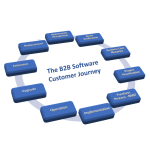Eating My Own Dog Food – My Experiences of Using a Consultant
For the third time in three years I’ve just paid for a consultant to do something for me. I’ve been a consultant for over 17 years – why would I use another consultant?
The principal reason in all three cases was that it was incredibly important to me get the right result in as short a time as possible. Doing nothing and hoping things would change was simply not acceptable. I did not have the time to get up the learning curve in the other consultant’s area of expertise. I also did not want to take the risks of error that any learning process requires or expose my clients to them.
Although I needed to get a result, none of the consultants would guarantee the outcome of their consultancy. Counter-intuitively this is reassuring to me: if you can guarantee a result when you have a whole load of unknowns facing you, you are either a magician or, more likely, a snake oil salesman. What the consultants would guarantee was their process to arrive at a result. This demonstrates their confidence that they have run their process with clients similar to me and have refined and honed it to ensure it is effective.
I did not have the time to learn what the consultant already knew. Equally, they made sure I described the situation in as much detail as possible and they also asked me what I thought the likely solution was. Both steps are necessary. The consultant needs as much information about the problem as they can get (so I had to describe it in detail). The consultant also needs to know how receptive I am likely to be to their solution (so I had to describe what I thought it might be). This is particularly important as the consultant is likely to want me to carry out some activity in order to achieve the result I’m looking for. If it’s going to be a new concept to me (or worse, something I think is a bad idea) then the consultant needs to be aware of this so that the plan of action does not fall on deaf ears.
On one of the three occasions the consultant’s solution was very similar to my own best guess. At this point it can feel like the consultant is taking your watch to tell you the time. Nonetheless, that at least confirmed that the course of action I expected to take was the correct one and that I had und erstood the details of some of the issues involved. Very reassuring as the piece of work I was doing was advising a client on a large investment. On the other two occasions the process to reach the desired outcome was some distance from my best guess. Left to my own devices I would certainly have lost a lot of time with false trails en route to the solution.
erstood the details of some of the issues involved. Very reassuring as the piece of work I was doing was advising a client on a large investment. On the other two occasions the process to reach the desired outcome was some distance from my best guess. Left to my own devices I would certainly have lost a lot of time with false trails en route to the solution.
How did I find my three specialist consultants? All three came from talking to acquaintances who I knew had had to solve a similar problem. This was followed by a brief due diligence exercise on my part to confirm that the consultant displayed both a knowledge of their subject on their website and that they asked me the type of questions during my first contact that demonstrated they understood my needs.
At no point did I discuss day rates. I was not hiring extra labour to overcome a peak of work that was ‘business as usual’ in nature (in this scenario day rates do matter). They were being hired to help with tasks where there was a clear gap in my experience. Instead, we discussed a fee estimate and a timescale for the completion of the work. I then compared this to the value I was going to get assuming they succeeded in delivering a result. In each of these cases the value generated was at least ten times the cost.
I have eaten my own dog food and I have benefitted from it.









